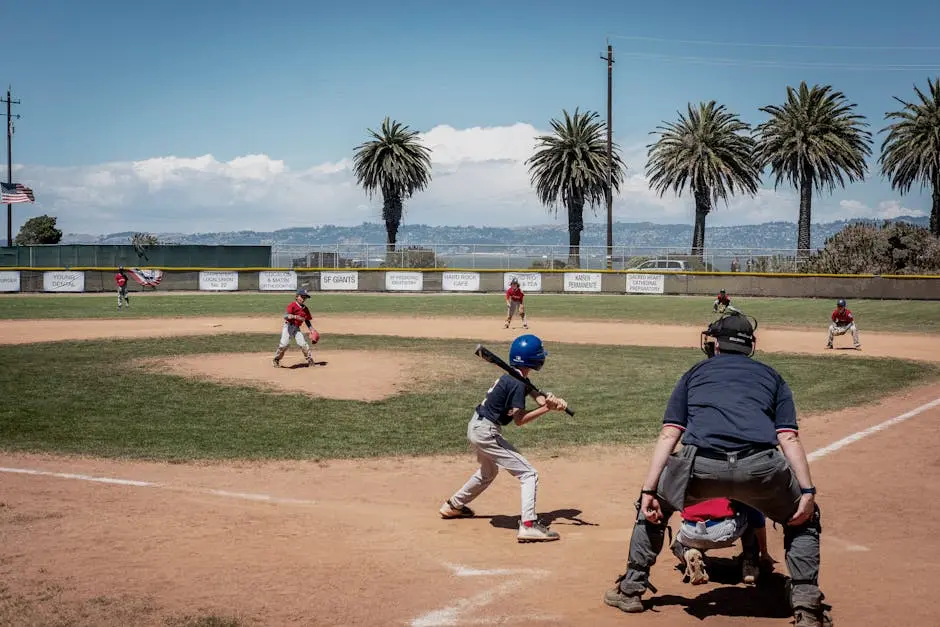Baseball is more than just a game; it’s a significant part of youth sports development. For many kids, it serves as their introduction to teamwork, discipline, and physical fitness. In this blog, we’ll explore how baseballs contribute to the growth of young athletes and the important life skills they gain along the way.
Teaching Fundamental Skills
Baseballs are essential tools for teaching fundamental skills such as throwing, catching, and batting. Through practice with these skills, young athletes develop coordination and confidence that can translate to other sports and activities.
The repetitive motion of tossing a baseball back and forth can significantly enhance a child’s motor skills. Not only does this improve their hand-eye coordination, but it also builds their ability to focus on the task at hand. Over time, these skills become second nature, allowing kids to excel not just in baseball but in any sport they choose to pursue.
Moreover, learning to hit a baseball properly lays a strong foundation for understanding the mechanics of sports in general. Children discover how to position their bodies, the importance of timing, and the necessity of concentration. With every swing, they are not just connecting with the ball; they are also forging a deeper comprehension of athletic movements that will serve them for years to come.
Fostering Teamwork and Cooperation
Playing with baseballs encourages children to work together as a team. They learn to communicate, support each other, and share both successes and failures, laying the groundwork for important social skills.
During practices and games, players must rely on each other to achieve a common goal, fostering a sense of camaraderie. This environment encourages kids to cheer for their teammates, celebrate victories, and learn from defeats together. As they collaborate on the field, they develop an awareness of others’ strengths and weaknesses, which often extends to friendships formed off the field.
Furthermore, teamwork in baseball helps sharpen problem-solving skills. Players are frequently faced with strategic decisions, whether it’s determining when to run for home plate or how to execute a double play. These moments teach children how to communicate effectively and work together under pressure, skills they can apply throughout their lives.
Promoting Physical Fitness and Health
Playing baseball provides an excellent way for kids to stay active. Running the bases, fielding, and batting all contribute to physical fitness, helping combat childhood obesity and instilling a love for physical activity.
Incorporating baseball into their routine ensures that young athletes are not only exercising but doing so in a way that’s fun and engaging. The varied movements involved in playing also stimulate muscle development, improving agility and strength. As young ones chase down fly balls or sprint to make that crucial play, they’re unknowingly establishing a solid foundation for a healthy lifestyle.
Moreover, the physical demands of baseball inherently encourage children to maintain a balanced diet and a proper lifestyle. Being part of a team often leads them to adopt better eating habits, inspired by their commitment to perform well. They begin to understand the importance of energy and nutrition, which pave the way for lifelong health-conscious choices.
Building Perseverance and Resilience
Baseball teaches children how to deal with setbacks—like striking out or losing a game. These experiences cultivate perseverance and resilience, which are vital life skills that help in and out of sports.
For instance, a child who strikes out may initially feel discouraged, but over time, they learn that resilience means shaking it off and preparing for the next opportunity. This process instills a mindset that emphasizes growth through challenges. As they navigate their feelings of disappointment, they come to understand that failure is not the end; it’s merely part of the journey.
Additionally, overcoming obstacles in baseball equips kids with the tools to tackle challenges in their daily lives. Whether in academics or personal relationships, the ability to persevere through adversity becomes a defining feature of their character. This vital life skill can lead to improved self-esteem and a tenacity that fosters lifelong success.
Encouraging a Lifelong Love for the Game
Engaging with baseballs can spark a passion for the game that lasts a lifetime. As children grow, their love for baseball can lead to participation in other forms of the sport, whether playing, coaching, or simply cheering on their favorite teams.
The excitement of stepping onto a baseball field for the first time can ignite a flame that fans the fires of lifelong enthusiasm. Those initial moments spent practicing with friends and family set the stage for memorable experiences that go beyond just a game. Kids who grow up playing baseball often find themselves reminiscing about their early days on the diamond, reinforcing their connection to the sport.
Moreover, as they transition from players to fans, many children develop a deeper understanding of the game’s intricacies. They cultivate a respect for the sport that permeates through all levels, from little league to major leagues. This passion not only enhances their appreciation for baseball but can also inspire others around them, creating a universal love for the game that bridges generations.
Wrapping Up the Impact of Baseballs on Youth Development
In conclusion, baseballs play a crucial role in youth sports development by promoting teamwork, physical fitness, and life skills. As young athletes learn the fundamentals of the game and develop a love for baseball, they are also building a foundation that will benefit them both on and off the field. Encouraging children to participate in baseball can have lasting positive effects, shaping their character and sportsmanship for years to come.





